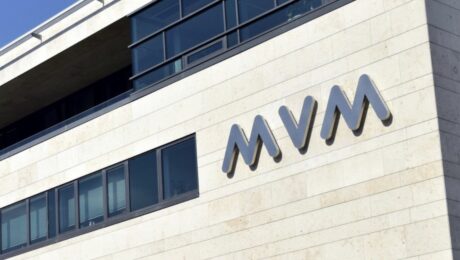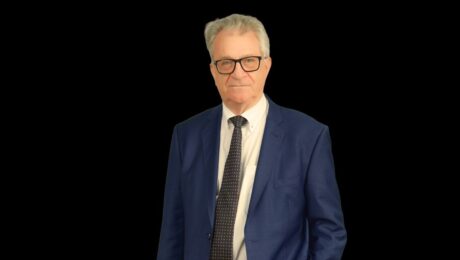Golden Visa Romania: A New Gateway for Investors in Romania
Romania is poised to become the latest European country to introduce a Golden Visa program, officially titled the Residency by Investment scheme, designed to attract substantial foreign investment by offering a renewable five-year residence permit in exchange for an investment of at least €400,000. Registered in Romania’s Senate on October 14, 2025, this bill marks a significant step toward opening Romania’s doors to non-EU investors seeking residence and eventual citizenship in the European Union.
Investment Options and Requirements
Eligible investors must commit at least €400,000 through one of several approved routes:
- Acquisition of real estate in Romania with a minimum value of €400,000, maintained for at least five years.
- Purchase of Romanian government bonds with a maturity of five years or longer.
- Investment in funds authorised by the Romanian Financial Supervisory Authority (ASF).
- Purchase of shares in companies listed on the Romanian stock exchange, worth at least €400,000.
Applicants must demonstrate the legitimate origin of funds, pass strict due diligence checks, and not be flagged on any international sanctions list. These security screenings involve Romania’s Intelligence Services and national anti-money laundering authorities.
Residency Benefits and Family Inclusion
Investors and their family members (spouse and dependent children) who obtain the Golden Visa will receive a five-year, renewable residence permit, enabling them to live, work, and study freely in Romania. The visa does not impose a minimum stay requirement, offering flexibility for travellers and families alike. Moreover, holders enjoy visa-free travel across the Schengen Area once Romania completes its full Schengen accession.
Pathways to Permanent Residency and Citizenship
After five years of maintaining the investment and residence status, Golden Visa holders may apply for permanent residency. Subsequently, they can seek Romanian citizenship under domestic law, which generally requires 8 years of residency but may be reduced to 5 or fewer in cases of economic contribution or other merit factors. The precise timeline for citizenship eligibility under the Golden Visa program remains subject to final legislative details.
Strategic and Economic Significance
Romania’s Golden Visa program is designed to stimulate the economy by attracting foreign capital, supporting real estate development, and creating job opportunities. Positioned as an attractive, cost-effective alternative to similar programs in Western and Southern Europe, it enhances Romania’s appeal as a gateway to the European Union market, with competitive investment thresholds and flexible residence options.
Legislative Outlook and Implementation Timeline
While the draft law has officially entered the legislative process in late 2025, it will require parliamentary approval, potential constitutional scrutiny, and the issuance of implementing guidelines before becoming operational. The program is expected to launch in mid to late 2026.
Romania’s Golden Visa offers a compelling proposition for investors seeking a foothold in Europe. With an accessible investment threshold, strong family-inclusion provisions, and an eventual path to citizenship, it reflects Romania’s growing ambition to attract high-net-worth individuals and position itself as a dynamic economic and cultural hub within the EU. Interested applicants should prepare for rigorous vetting and stay abreast of legislative developments to be well-positioned when the program becomes live.
- Published in News
Import Taxes and Their Impact on Romanian Companies
Dr. Radu Pavel, Coordinating Attorney of the Romanian Law Firm Pavel, Mărgărit and Associates, emphasizes the importance of understanding the commercial and legal implications arising from the new international customs policies, as well as the need for a prompt and well-substantiated response from affected companies, including those in Romania, to safeguard their economic interests and avoid the negative consequences of abusive or incorrect customs decisions.
The Trump Administration has announced that new import taxes will come into force on imports from countries such as China, Mexico, and Canada. These measures will lead to higher prices for goods entering the United States, but their effects will also be felt in Europe, including Romania. Even though our country is not on the blacklist, Romanian companies may be indirectly affected.
How can a Customs Decision Be Challenged in Romania?
In Romania, challenging a decision issued by the customs authority requires filing an administrative complaint, which must be submitted to the authority that issued the decision. This can be done within 45 days of receiving the decision notification or the administrative act that determined the customs obligation.
At this stage, individuals or companies in Romania who consider themselves harmed by imposing an incorrect customs duty, misclassifying goods, or any abusive customs decision may submit a written complaint. The complaint must be substantiated with supporting documents such as commercial invoices, customs declarations or transport documents.
Additionally, those contesting a customs decision may argue that the decision is legally incorrect based on customs regulations or applicable trade treaties. The customs authority will review the complaint and issue a response. If the complaint is rejected, the next step involves taking the matter to court.
Challenging a customs decision in court
Legal action must be filed within 30 days of receiving the response to the administrative complaint. The court will analyze the legality of the customs authority’s decision and verify whether it complies with current legislation. If the trial court rules in favor of the party contesting the customs decision, the authority must take appropriate corrective measures. Otherwise, the dissatisfied party may file an appeal with the Court of Appeal within 15 days from the notification of the ruling. The Court of Appeal will thoroughly assess whether the Tribunal correctly applied the law and may uphold or amend the decision.
„All these international tax updates in Romania can represent a real challenge for a company in Romania. Even if not directly targeted, companies can be indirectly affected through supply chains, increased costs or customs delays. Adapting to this new global context requires a sound understanding of international trade regulations and correctly interpreting applicable legal provisions. With the support of a lawyer for taxes in Romania or a tax attorney in Romania, risks can be significantly reduced, allowing companies to remain competitive and compliant with current requirements,” said Dr. Av. Radu Pavel, Managing Partner of the Romanian Law Firm Pavel, Mărgărit, and Associates.
Types of decisions issued by customs authorities
Customs authorities in Romania may issue several types of decisions, depending on the nature of the control and the findings. The most common are decisions to regularize additional tax obligations. These arise after a customs inspection during which inspectors find that certain customs duties and import taxes in Romania, such as VAT or import duties, were omitted or incorrectly declared and issue a decision imposing the payment of the resulting differences.
Authorities may also issue decisions concerning the application of customs or other import taxes in Romania in cases of suspected undervaluation of goods or incorrect declaration of origin. Additionally, when a company requests the reimbursement of overpaid or erroneously paid customs duties, the authority may reject the request if the legal conditions are not met.
Furthermore, sanctioning decisions, including fines and other contravention measures, may be issued when violations of customs regulations are found. Customs authorities may also implement administrative control and monitoring measures, including the temporary detention of goods or the refusal of entry into the country.
- Published in News
Hungary’s MVM Aims to Acquire E.ON Romania: A High-Stakes Move for Energy and Diplomacy
Romania’s energy landscape faces a pivotal moment following the December 16, 2024, announcement that Hungary’s state-owned energy conglomerate, MVM, intends to acquire a 68% stake in E.ON Energie Romania. Valued at approximately EUR 205 million, this deal would give MVM direct access to around 3.4 million Romanian customers, spanning natural gas and electricity services.
While the acquisition appears to be a straightforward business transaction at first glance, it has triggered intense debates over national security, potential Russian influence, and the broader implications for Romanian-Hungarian relations. Against a background of recent political uncertainties and heated rhetoric from nationalist groups, the future of this acquisition hinges not only on corporate negotiations but also on regulatory and diplomatic manoeuvring.
Spotlight on National Security
A central concern among Romanian officials is the source of MVM’s capital. Although MVM is state-owned by Hungary, some fear that hidden financial channels might be linked to Russian gas transactions, potentially increasing Moscow’s indirect influence in Romania’s critical energy sector. This fear is particularly acute after a major political scandal that saw presidential elections cancelled after alleged foreign interference. While no direct evidence of Russian meddling has surfaced publicly, the heightened sensitivity around such matters is driving calls for thorough oversight of the MVM-E.ON deal.
Energy Minister Sebastian Burduja has repeatedly stressed the need for a diligent review to ascertain whether the acquisition aligns with national security interests. Burduja’s statements signal that the government intends to comb through the proposed deal, examining standard financial and competition regulations and potential security pitfalls.
Financial and Market Scrutiny
Equally contentious is the acquisition’s price tag—approximately EUR 205 million. Critics, including some Romanian officials, argue that the valuation surpasses E.ON’s actual market worth, pointing to the possibility that MVM might be “overpaying” for strategic or political reasons rather than commercial logic alone. Such speculation intensifies the scrutiny surrounding the origins of MVM’s capital and the long-term strategic goals behind the purchase.
Beyond market valuation, Romanian authorities are looking at competition compliance and consumer impact. If MVM acquires a substantial share of Romania’s energy distribution, it could reshape pricing, investment priorities, and overall market dynamics. Although the Romanian government typically encourages foreign investment, particularly in infrastructure, the complexity of this deal has put an unprecedented spotlight on balancing commercial benefits with national and regional security considerations.
Rising Nationalist Backlash
Not all the opposition originates from government corridors. Romanian nationalist voices have labelled the acquisition as “treason,” urging officials in Bucharest to block the deal outright. They view a Hungarian state-owned enterprise controlling a critical piece of Romania’s energy supply as a direct threat to national sovereignty. These calls have amplified tensions that occasionally flare up between the two neighbours, evoking historical grievances and fears of undue Hungarian influence.
Romania’s ongoing sensitivity to external interference is a complicating factor in the public debate. Though devoid of concrete proof of Russian involvement, the recently nullified presidential election has sharpened the public’s awareness of how foreign players could potentially sway domestic outcomes—especially in a crucial sector like energy.
Diplomatic Dimensions: The Schengen Connection?
A notable dimension of this story is Hungary’s endorsement of Romania’s bid to join the Schengen Area. Joining Schengen remains a strategic priority for Romanian policymakers, as it would facilitate cross-border travel and strengthen the country’s integration within the European Union. Hungarian officials have repeatedly supported Romania’s Schengen ambitions—leading some observers to speculate that the MVM-E.ON deal could be part of a broader quid pro quo.
Though neither government has confirmed such a link, the timing feeds speculation that the transaction might be a diplomatic bargaining chip. If Romania approves the acquisition with limited objections, Hungary’s vote of confidence for Romania in EU forums may solidify. Conversely, if Romanian regulators either stall or block the deal, it could raise questions about whether Budapest might withdraw its support on the Schengen matter.
Potential Outcomes, What They Mean for Romania
Regulatory Hurdles
Romanian competition and national security authorities could impose stringent conditions or veto the acquisition. Such measures might demand full disclosure of MVM’s financial backers or obligations to invest in local infrastructure to mitigate security risks.
Energy Market Realignment
MVM’s expanded footprint could reshuffle Romania’s gas and electricity sectors if the deal moves forward. This could affect pricing, regional energy cooperation, and Romania’s relationships with other European suppliers.
Diplomatic Fallout or Opportunity
A streamlined approval might be cast as a gesture of goodwill, aligning with Hungary’s overt support for Romania’s Schengen ambitions and potentially reinforcing bilateral ties.
A drawn-out review or rejection could invite criticism from Hungary and fuel nationalist sentiment within Romania—potentially complicating broader European negotiations.
Public Trust and Transparency
Amid ongoing concerns about foreign interference and manipulative media campaigns, Romanian officials will be under intense pressure to ensure transparency. A rigorous review process could bolster public trust, regardless of whether the deal proceeds.
The MVM-E.ON acquisition drama underscores the intricate interplay of economics, security, and diplomacy in Romania’s evolving landscape. With the high stakes, Romanian regulators and political leaders are walking a tightrope—aiming to attract foreign investment while shielding critical infrastructure from undue external influence.
Simultaneously, the country’s desire to join Schengen introduces an extra layer of diplomatic complexity. Whether or not Romania decides to give MVM the green light, the outcome will reverberate well beyond corporate boardrooms, potentially shaping Romania’s European integration trajectory and the region’s energy equilibrium for years to come.
At Lobby Romania, we remain committed to delivering in-depth analysis of the nation’s most pressing issues. Stay connected for further updates on how this deal unfolds—and what it means for Romania’s future in Europe’s energy and political arenas.
- Published in News
Best Practices To Approach When Investing In Romania
Direct foreign investment in Romania has decreased recently, as noticed by the National Institute of Statistics. The top foreign investors in Romania have become Romanian immigrants who send money to their relatives in the country.
In this context, one of the most experienced foreign lawyers specializing in investing in Romania, Mr. Nicholas Hammond, shared his thoughts on best practices to approach and mistakes to avoid when investing in Romania as a foreigner. His firm, Hammond Partnership, was the first foreign law company to open an office in Bucharest, and this was quite an adventure, as he remembers.
As a Romanian law firm with a wide range of clients from major industry leaders to small startups, we see our role as Romanian lawyers in Bucharest as to guide, lead, and sometimes contradict our clients and point out potential issues to be resolved. As a solicitor fresh out of London, I came to Romania to open a Romanian law firm, and it was a new experience. Opening the first foreign law office in Romana after 1989 was an adventure. To still be here some 30 years later is a success for my firm, and I am proud of it. There have been some missteps on the way, but as we emphasize to all our Romanian and international clients, Romania is still a wonderful place to do business. Nicholas Hammond, Senior Partner at Hammond Partnership
According to Nicholas Hammons, it is essential to understand the local laws and society and how Romanian business works before going into business. Romanian company law differs from company law in England and the United States. The ways of doing business are vastly different.
The legal liability of Romanian company directors (administrators) differs from that of an English company director. The responsibilities of a director are different, as are their powers. The structure and authority in business are different, as is the thinking behind the law. It would be best if you had a clear explanation of the liabilities of an administrator before taking on this responsibility. This is not to advise you not to become a director of a Romanian company but to emphasize that you need to understand what it entails. A Romanian company’s taxation rules appear straightforward, but again, take advice.
Nicholas Hammond also approached one sensitive topic: why Romanian lawyers are not so successful in certain situations when foreign investors need advice on opening a business in the country.
There are many Romanian lawyers who, unfortunately, do not understand the thinking of a foreign investor and, therefore, misadvise them. Too often, assumptions are made regarding their client. It is natural for investors to assume that if someone speaks English, the Romanian lawyer or the Romanian law firm delivers advice in the same manner and with the same understanding as they would receive in England. Just like any other relationship, the relationship between a lawyer and his client is based on trust and clear communication. Still, often, there is a vast difference between what is said and what is understood. Words used by a natural English speaker often do not mean the same for a Romanian speaker. Context can produce disastrous miscommunication. For example, “I want“ in Romanian is a translation of “I would like.” This can have an entirely different impact in English and on a native English speaker.Nicholas Hammond on why is better to choose an adequate law firm when investing in Romania
He advises that when you come to Romania to invest, write as many questions on paper as you can, ask your Romanian lawyer the questions, and seek to understand the answers. The price for fully answering their questions could save you higher fees. Do not choose your lawyer on price but on an evaluation of the advice that they give now and can give in the future.
- Published in News
Eyes on Romania: Investors Grew the M&A Market above USD 7 Billion
Romania remains on investors’ radars despite the rising cost of money and inflation. In value, the M&A market exceeded 7 billion dollars in 2023 but was massively supported by two mega transactions. This year is still under the sign of growth, Romania News reports.
The takeover of Profi by Ahold Delhaize, the owner of Mega Image, for $1.4 billion and the sale of Enel Romania to the Greeks from PPC for $1.3 billion are the essential local transactions and the two mega transactions (worth over 1 billion dollars) from last year. Also, in 2023, there were three other agreements of 200-300 million dollars each, with medium-sized transactions vital for the health of the M&A market.
The steps in a merger and acquisition are complex, but with the help of specialized lawyers, investors overcome any legal challenges.
In 2023, 241 transactions were initiated in Romania, with a total value estimated at almost 7.1 billion dollars, according to an analysis by the audit and consulting company EY. It is about the total value of the market, i.e. both transactions with communicated and uncommunicated value, but estimated by EY, are taken into account.
In terms of volume, the market decreased slightly compared to the maximum reached in 2022 – when 257 agreements were signed, 16 more than last year – but in terms of value, it is the best year (plus 6%).
The data show that Romania remains on the radar of investors in the M&A market despite the rising cost of money and still high inflation, factors that have led to a cautious approach, especially among buyers. However, in value, the market exceeded 7 billion dollars because two mega transactions supported it.
The takeover of Profi by Ahold Delhaize, the owner of Mega Image, for $1.4 billion and the sale of Enel Romania to the Greeks from PPC for $1.3 billion are the most critical local transactions and the two mega transactions (worth over 1 billion dollars) from last year.
The corporate and M&A market is also expected to grow in Romania this year. The country is attractive to investors, and the economic outlook for 2024 is somewhat optimistic, favouring the decision to invest.
- Published in News
Understanding the US BOI Report’s Impact
The US Beneficial Ownership Information (BOI) Report is a crucial development, particularly relevant for those in the Romanian business sector with connections to the United States. This report has become a focal point in corporate compliance and transparency, and this is something not only business owners but also lobbyists and advocates should be aware of.
From January 1st, 2024, it’s mandatory for US-based companies, under specified conditions, to submit the BOI Report. The purpose of this document is to transparently reveal the real owners and key decision-makers of these companies.
This report, officially known as the Beneficial Owner Information report, is a requisite filing for every US-based company with the Financial Crimes Enforcement Network (FinCEN), an agency under the U.S. Department of the Treasury. It aims to disclose the identities of beneficial owners – those who ultimately own or exert control over the company – along with company applicants and the individuals who first registered the entity in the US.
Filing a BOI report requires companies to detail information about their structure, their beneficial owners, those who ultimately hold ownership or exert control, the company applicants, and the individuals who established the company in the US.
Under this legislation, a ‘beneficial owner’ is defined as any individual who:
- Holds significant control over the company, or
- Possesses or controls a minimum of 25% ownership in the company.
Individuals capable of making pivotal decisions for the company are considered to hold significant control.
While there are certain exemptions, the introduction of this legislation marks a critical step by the US in its efforts to combat financial crimes like money laundering and tax evasion.
For those uncertain about the applicability of the BOI Report to their situation, consulting firms that specialize in the BOI Report process is highly recommended. They provide expert advice and insights into navigating this new regulatory landscape.
We recommend working with Corporate Mile, an American-based legal company which helps entrepreneurs clarify all aspects of their obligation to fill out a BOI Report or not if part of the exemptions to BOI filling. For all the questions regarding BOI and its impact on your business, if you have set up a company in the US, you can contact them directly or consult any other similar reliable company.
- Published in News
Nokian Tyres to Build Million Euro Plant in Romania
In addition to its current operating facilities in Finland and the US, Nokian Tyres, a Finnish firm, has announced plans to develop a tire factory in Romania. The business was founded in Nokia, Finland, in 1988 and produces tires for cars, trucks, buses, and heavy equipment.
The new factory will be located in North-West Oradea, not far from the Hungarian border, and it will have a 6 million tire yearly manufacturing capacity. This project, which will include 650 million euros in investment, is regarded as a greenfield project.
The board of directors of Nokian Tyres decided last month to begin a controlled withdrawal from the area and signed a deal to sell its Russian subsidiary as a result of the conflict between Russia and Ukraine and the subsequent tightening of sanctions. This led the manufacturer to decide to broaden its operational strategies and invest in a new manufacturing facility in Europe to ensure the supply of its goods. To accomplish its objectives, the upcoming Romanian plant is essential.
”A world-class manufacturing facility in Europe is a key step in getting additional capacity and creating a balanced manufacturing platform as we start building the new Nokian Tyres without Russia”.
Jukka Moisio, Nokian Tyres Presdinet and CEO
Because of the nearby production of green energy, the logistical and administrative advantages, and the readily accessible skilled labour force, Oradea is the ideal location for the construction and growth of the facility.
The plant’s construction is scheduled to begin in early 2023, and it is projected that the first tires will be produced in the second half of 2024 with a staff of 500 people. Early 2025 is the expected start date for commercial production, along with the addition of a house distribution facility for the transportation and storage of tires to the industrial site.
- Published in News









